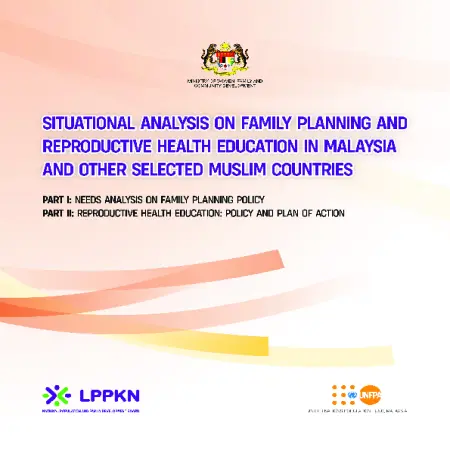| Abstract |
This study is an initiative by the Ministry of Women, Family and Community Development (MWFCD) through the National Population and Family Development Board (NPFDB) in collaboration with the United Nations Population Fund (UNFPA), who has been a strategic partner of NPFDB since the 1990s in the Sexual and Reproductive Health (SRH) programmes. This study was conducted at where there are rapid changes in the population dynamics and demographic trends together with the advancement in human capacity development and new communication technologies.
It is an effort that enables the nation to achieve its commitment locally towards Malaysia’s Shared Prosperity Vision 2030 agenda and internationally, such as the ICPD Plan of Action. The objective of the study is to identify the best practices of reproductive and sexual health (SRH) programs including family planning and reproductive and sexual health education (SRHE) among selected Islamic countries that practice sunni sects to provide direction to Malaysia. Five (5) countries were selected for the purpose of comparison with Malaysia are Turkey, Egypt, Morocco and Bangladesh.
The report of this study proposes several strategies and improvements as a result of a gap analysis with other Muslim countries that can help strengthen the strategy and implementation of the National Sexual and Reproductive Health programmes to improve reproductive health indicators such as Maternal Mortality Rate, Infant Mortality Rate and Age Specific Fertility Rate, as well as reducing the number of cases of teenage pregnancy, abortion, sexual abuse and sexual crimes. |





